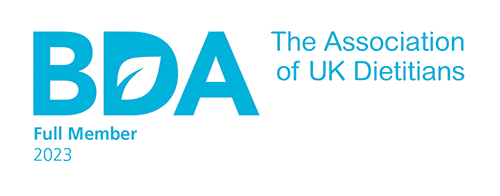The day we’ve all been waiting for…Friday 11th May 2018 is National Eat What You Want Day!!
WARNING – If you enjoy food like avocado, nuts, olive oil, salmon or greek yoghurt for example, but often avoid them in favour of low fat or diet products, then eating what you want could seriously improve your health. Read on.
If you only like food served or delivered in a box and washed down with coloured, sweet liquids, then eating what you want could seriously damage your health. Read on at your peril.
Open Letter to the Founder of National Eat What You Want Day 2018,
Thank you…for giving me permission to eat what I want today. Thank you…for allowing me to make my own food decisions today. Thank you…for allowing me to have an independent thought.
For 364 days of the year, I am burdened with eating food I don’t want to eat. For one day only, I will eat what I want and I will enjoy it.
But I am worried. If people get the ‘taste’ for eating what they want today, isn’t there a possibility they might want to do that for the remaining 364 days?
I don’t think we can take that chance. I appeal to you to abolish National Eat What You Want Day – the risks simply outweigh the benefits.
Yours faithfully, Kate McCulla Nutrition
OK, I’m being flippant, and this National Day was likely conceived in good humour, but it does point a finger at an important problem – the reason we choose food has become distorted. We decide to eat (or not eat) food for a multitude of reasons, often at the expense of what we actually want.
How often do you choose food because:
- I’m ‘allowed’ it
- I’m on a diet
- I’m not on a diet
- It’s only got x calories / x ‘points’ / x ‘syns’
- It’s low fat
- It’s sugar free
- It’s Friday evening
- I’ve had a bad day
- It’s there
- Someone else is eating it
- The label says ‘guilt free’
- And so on..
How often do we ask ourselves what we actually want to eat?
This should be the main reason for choosing food.
But this scares you.
Food rules have become so dominant, you’re scared that if you eat what you want, all you will want to eat is ‘rubbish’.
This is a common reaction if you often diet, and cut out all ‘rubbish’ at these times. Of course you’re going to be drawn to this food. Diet studies often show that when not allowed something we want it more. This is not a permanent preference. It is a temporary rebellion.
Foods are less appealing the more you are exposed to them and provided you are freely allowed to eat them if you choose to. This effect is called the Habituation Response.
However, the habituation response is diminished for dieters because they often do not feel like they are fully free to make their own food decisions, so the ‘forbidden foods’ never get a chance to lose their appeal.
In other words, making food decisions based on diet rules, at the expense of considering what food you want, keeps ‘problem’ foods as just that – problems.
In addition to that, I bet most of you will have had the following experience:
You want chocolate but you’re ‘trying to be good’ or lose weight.
So you eat an apple. Didn’t hit the spot.
Then a rice cake. Didn’t hit the spot.
Next a diet yoghurt. Didn’t hit the spot.
Then maybe a plain biscuit….No, still not satisfied.
Ah heck…where’s the chocolate? Having eaten your way around the kitchen, you end up eating what you wanted in the first place.
So on National Eat What You Want Day 2018, you have 2 choices:
- Eat anything and everything today in unlimited quantities – you are most likely to choose stereotypical ‘bad’ foods – and go back to your food battle for the next 364 days, or
- Consider what it is you really want to eat, what you are going to savour and enjoy, what is going to satisfy. You may surprise yourself with the realisation that you don’t always want what you might consider ‘bad’ foods and that given the choice, your choices may be quite balanced. You have 365 days a year to practice this. And by the end of that year, you might even be closer to your weight goals.
Happy National Eat What You Want…
….today, and every other day ending in Y.


